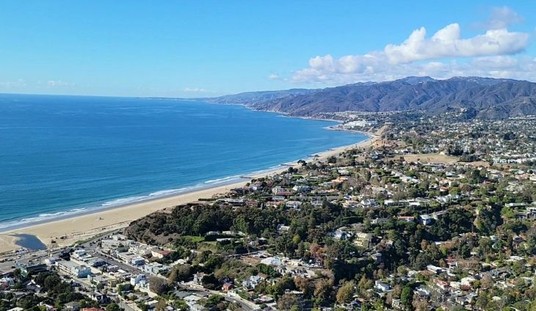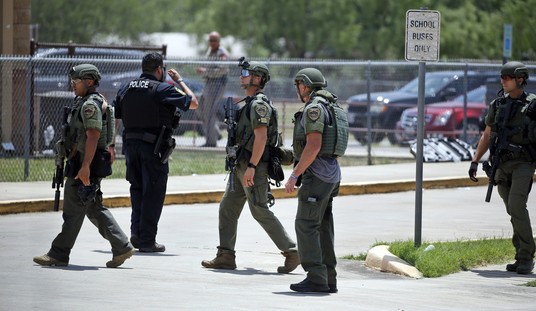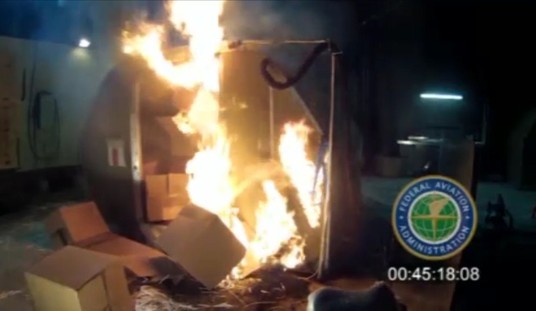Americans who want to leave Japan will shortly get flights home, courtesy of the US government. The evacuation will be entirely voluntary, but the signal it sends isn’t exactly one of hope:
Japanese military helicopters and fire trucks doused an overheating nuclear plant with water on Thursday while the United States said it was sending aircraft to help Americans worried about spreading radiation leave the country.
Engineers tried to run power from the main grid to start water pumps needed to cool two reactors and spent fuel rods considered to pose the biggest risk of spewing radioactivity into the atmosphere.
U.S. officials expressed alarm about leaking radiation but took pains not to criticize Japan’s government, which appears overwhelmed by the crisis. Washington’s actions indicated a divide with its close ally about the preciousness of the world’s worst nuclear accident since the Chernobyl disaster in 1986.
Right now, the crisis teams are trying to evaluate how well the water dumps and water cannons have worked in cooling the reactors, especially #3, which contains plutonium. As those evaluations continue, TEPCO continues its rush to connect power back to the station to get cooling systems back on line:
The operator of Japan’s troubled Fukushima Daiichi nuclear-power plant said it had started work on Thursday to connect outside power cables to the plant and that electricity could be connected on Thursday.
The power may be connected as early as the next few hours. Japan will connect reactor 2 to power first, because it still “has a roof” and workers can connect power to internal systems more effectively.
CNN has this report on the calm patience of the Japanese people in the midst of this crisis:
Andrew Malcolm offers his experiences from his years in Japan to explain this, which should be read in full, but here is his conclusion:
Watching the latest quake victims interviewed by reporters, vivid memories of that previous disaster rushed back. I had come upon an old woman rummaging through wreckage. Yes, she said, nodding politely with each sentence. They had lost everything. The house used to be right here. Nothing left. And a daughter missing as well.
I had been overwhelmed that day, as I am again today, with the unimaginable scale of such cataclysm. Beyond even tornadoes. But then I became even more stunned by the response of those Japanese people, their strength and stoicism. No self-pity. No wailing, whining. No blaming government. No victimhood. No what-will-we-ever-do? In fact, the less they said, the stronger they seemed.
Then, the Japanese farm woman bowed deeply, mumbling something. Sorry, I asked, what did you say?
Turns out, the newly homeless woman was apologizing for being unable to serve me tea.
In the US, NBC spent time on Today discussing worst-case scenarios, and discussed the uncertainties of the implications of exposed fuel rods in reactor 4. In the end, the best one can get from this is that no one here really knows much about what’s going on in Japan:
Visit msnbc.com for breaking news, world news, and news about the economy
Update: The US Nuclear Regulatory Commission tries to tamp down concerns over effects of the radiation as it gets dispersed across the Pacific:
The US Nuclear Regulatory Commission sought to tamp down American fears of nuclear fallout, stressing Thursday there was no present radioactive risk to US territory from Japan’s quake-stricken atomic reactor.
“All the available information continues to indicate Hawaii, Alaska, the US Territories and the US West Coast are not expected to experience any harmful levels of radioactivity,” the NRC said.
The statement follows a day of near-panic buying of iodide pills in the United States, notably in California and Hawaii, the Pacific island state some 4,000 miles (6,500 kilometers) east of Japan.
It’s a little late, but a welcome, reminder that we’re more likely to absorb more radiation flying across the US in a few hours than we’ll ever see from Japan’s nuclear crisis.








Join the conversation as a VIP Member